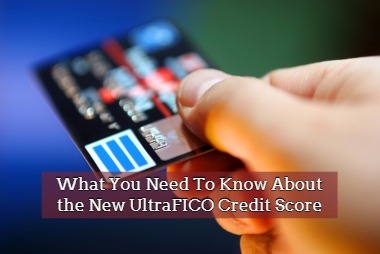
Recently, FICO announced a new scoring model that will roll out in 2019 called the UltraFICO. The new model will allow consumers to provide their bank account information to prove they are more creditworthy than they appear. By opting in, they may have a chance to qualify when they otherwise would not.
According to FICO, seven out of ten consumers that show an average savings of $400 without negative balances in the past three months will see an increase in their FICO Score with the UltraFICO Score.
Historically credit scores have been based on how a consumer handles debt, only taking into account payment history, credit utilization, length of credit history, new credit and their credit mix. In recent years, banks and other lenders have primarily focused on consumers who are ultra-creditworthy but now are seeking opportunities to expand their customer base during a strong economy.
The new model will help reassure banks and give those who would not appear credit-worthy based on credit reports another way to qualify. This would likely benefit consumers who may be recovering from some financial hardship or those who have no credit, offering them another way to score which opens up more opportunity for credit access.
Here’s what you need to know:
-
You Will Have to Opt-In to Disclose Your Bank Account Information.
To get the boost in your credit score from UltraFICO, you will have to grant secure access to a bank account of your choice with the lender. Doing so grants permission to information from your banking statements, including the length of time accounts have been open, frequency of activity, and evidence of saving, which can be electronically read by Finicity, a supporter and partner with FICO for the UltraFICO score. It will also be combined with consumer credit information from Experian to provide an enhanced view of positive financial behavior. The information will be collected and held by Experian not directly shared with the creditors. Experian will send lenders a report that includes a summary of the consumer’s bank accounts.
-
It Won’t Be Available to Consumers Until Mid-2019 and Only If Lenders Choose to Use it.
FICO, Experian and Finicity will begin with a pilot at a handful of lenders including online, nontraditional lenders as well as credit unions in early 2019 according to David Shellenberger, senior director of scores and predictive analytics at FICO. It will likely be summer in 2019 when it’s rolled out and available to all lenders. Lenders will still have a choice of which model to use when reviewing consumers credibility, which may make it difficult to find a participating lender.
-
The UltraFICO Credit Score Won’t Hurt Those Who Have Good Credit.
The only time UltraFICO would be triggered is if you have a poor credit rating and lenders are willing to consider your banking information to show you have a handle on your money. This does not open up the floor for lenders to request your banking information if you otherwise have a good credit score. It works more as an appeal to the lender that you are credit worthy, proven by your bank account and available cash. Shellenberger said 40 percent of credit newbies and ten percent recovering from poor credit saw an increase of 20 points or more using the UltraFICO scoring model.
-
If You Choose to Opt-in, You Get to Choose Which Bank Account to Give Access To.
Applicants will have the ability to choose if they have more than one bank account and which bank account to use for the UltraFICO check.
-
It’s Not Wise to Fake Credit-Worthiness.
If you are struggling financially it’s not wise to apply for new lines of credit, such as credit cards. The UltraFICO is not meant to make risky borrowers more creditworthy than they actually are. It is meant to help those who are in a good place financially, able to make on-time payments and are managing their finances well.
If you are struggling to make ends meet, your priority should be getting back on track financially. A nonprofit credit counselor can help you create a budget, address debts that are stressing your financial ability and give you a plan for financial security. It’s important not to wait until it’s too late. Find a nonprofit credit counselor near you today.

